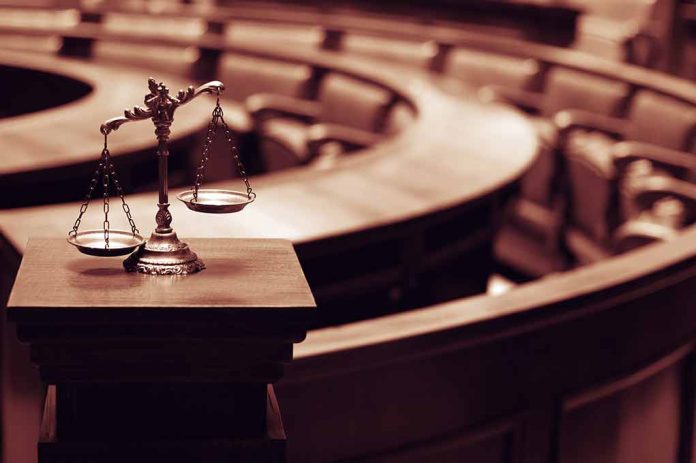
The Department of Justice is reportedly preparing to drop charges against former President Donald Trump, potentially reshaping the U.S. political landscape.
At a Glance
- DOJ plans to drop charges related to “insurrection” and classified documents against Trump.
- Special Counsel Jack Smith’s office is winding down work on federal criminal charges.
- Trump-appointed Judge Aileen Cannon dismissed charges related to document removal.
- State charges in New York and Georgia may also be stalled.
- Legal experts suggest a final report could be submitted to Attorney General Merrick Garland.
DOJ’s Decision to Drop Charges
The Department of Justice is reportedly set to drop charges against Donald Trump involving “insurrection” and classified documents. This decision comes in the wake of Trump’s 2024 election win and aligns with the DOJ policy that sitting presidents cannot be prosecuted. The move has sparked widespread discourse and could significantly impact the U.S. political landscape.
Special Counsel Jack Smith’s office, which had charged Trump in two cases – illegal removal of government documents and involvement in the January 6 Capitol attack – is now winding down its work on federal criminal charges against the former president.
Legal Implications and Presidential Immunity
The decision to drop charges raises questions about presidential immunity and the limits of prosecutorial power. The Supreme Court’s recent decision in Trump v. United States suggests that a president is immune to prosecution for official actions taken in office. This stance is likely to be supported by the current Supreme Court composition.
The norm of non-interference with criminal prosecutions by the White House is voluntary and not constitutionally binding. This leaves open the possibility for a sitting president to influence or even dismiss federal charges against themselves.
Impact on State Charges and Future Proceedings
State charges against Trump in New York and Georgia may also face significant hurdles. There is no precedent for state indictments of a sitting president, and these cases could potentially reach the Supreme Court. The uncertainty surrounding these charges adds another layer of complexity to the legal landscape.
While federal and state criminal charges may be stalled or dropped, Trump could still face civil liabilities, including payments related to the E. Jean Carroll case. Additionally, there are concerns about potential violations of the Emoluments clause if Trump uses the presidency to generate income for his properties.
Potential for Future Action
Legal experts suggest that the winding down of Smith’s office allows for the submission of a final report to Attorney General Merrick Garland. This report could potentially be made public and used in future cases against Trump after his presidency.
As the political and legal landscape continues to evolve, the impact of these developments on public perception and future governance strategies remains to be seen. The situation underscores the complex interplay between presidential power, legal accountability, and the enduring strength of America’s democratic institutions.
Sources:
- DOJ Will Drop Lawfare “Insurrection,” Classified Docs Charges Against Trump
- The criminal cases against Donald Trump are now basically dead
- DOJ Special Counsel Jack Smith Is Shutting Down His Work on Trump Criminal Cases







